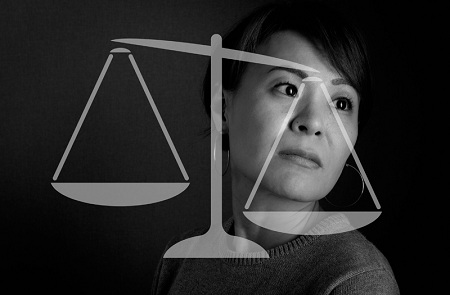Feeling Dizzy And Weak? It Might Be Your Hormones Rising Up and Down! See The Causes, Signs and Symptoms and Treatment of Hormonal Imbalance

Hormones are the body's chemical messengers produced in the endocrine glands. When the body's hormonal system fluctuates, the body can face serious issues.
Hormones are the body's chemical messengers produced in the endocrine glands. These chemicals travel all over the body through bloodstream commanding tissues and organs what to do.
It's totally normal for your levels to shift at different times of your life during and before pregnancy, or during menopause. These messengers control most bodily functions from a simple basic needs like hunger to complex systems like reproduction and metabolism.
When you have a hormonal imbalance, you have too much or too little of a certain form of the hormone. Even a minute change in the body cells can cause a serious effect on the body.
What is Hormonal Imbalance?
Produced by the endocrine glands, hormones travel through the bloodstream to tissues and organs and control our body's major systems.
It affects our body's functions like growth and sexual development to how well we sleep, stress management and food breakdown.

When the level of hormone fluctuates it can cause widespread major health problems.
Signs and Symptoms
As stated above, hormone plays a key role in your overall health, perfect balance is vital in the body. Symptoms of hormonal imbalance depend on which hormones or glands aren't functioning properly.

Though there are some common symptoms observed like a puffy face, frequent urination, and muscle weakness, unbiased of the gender, it's important to know specific signs observed in people genderwise. Here we have listed some general symptoms observed in women and men.
Symptoms in Women
Most common hormonal imbalance observed in women is polycystic ovary syndrome (PCOS). The hormonal cycle may also fluctuate in the female during pregnancy, breastfeeding, menopause, and puberty.
Some of the most common symptoms are listed below:
- Heavy or irregular periods like missed, stopped, or frequent period.
- The growth of excessive hair in face, chin and other body parts.
- The appearance of acne on the face, chest or upper back.
- Excessive hair loss
- Overweight or difficulty losing weight.
- Vaginal dryness
- Darkening of skin along the neck, groin and underneath breasts.
- Night Sweats
- Pain during sex
Symptoms in Men
Testosterone hormone plays a key role in the well functioning of the body of a male. If the production of testosterone isn't enough, it can cause a variety of issues in the body.
Some symptoms observed in an adult male are listed below:
- Tenderness of breast
- Erectile dysfunction
- Development of breast tissue
- Decreased sexual desire
- Infertility
- Loss of muscle mass
- Osteoporosis
- The decrease of beard and body hair
Causes of Hormonal Imbalance
There are various causes of hormonal imbalance. The exact cause of imbalance vary on the which hormone or gland is affected.

Some common causes of hormonal imbalance are:
- Diabetes
- Hyperthyroidism
- Hypothyroidism
- Cushing syndrome
- Hypogonadism
- Thyroiditis
- Hormone Therapy
- Tumors
- Stress
- Injury or Trauma
- Cancer Treatments
- Medications
- Eating disorders
- Congenital adrenal hyperplasia
- Adrenal insufficiency
- Pituitary tumor
Some Causes Specific to Women
- Pregnancy
- Breastfeeding
- PCOS
- Menopause
- Consumption or use of birth control pills
- Primary ovarian insufficiency
- Premature menopause
Diagnosis and Treatment Measures
There's no specific mechanism to diagnose a hormonal imbalance. Still, the procedure begins with a physical examination.
Describing details about the symptoms and time period along with the issue is very important.
Here's a video listing five essential foods to balance hormones naturally in women and men, Must Watch!
In addition, you should explain all the ongoing medications, vitamins, and supplements. Based on the observed signs and symptoms, your doctor may recommend one of the following treatment measures:
1. Blood Test
2. Pelvic Examination
3. Ultrasound
Some additional tests include MRI, X-ray, biopsy, and thyroid scan.
Treatment Methods for a Hormonal Imbalance
Treatment option for hormonal imbalance is basically related to the exact cause of it. Some general treatment options include:
1. Estrogen Therapy
2. Vaginal Estrogen
3. Anti-androgen medications
4. Thyroid Hormone Therapy
5. Testosterone Therapy
6. Metformin
The treatment options listed above are strictly based on the type of hormonal imbalance so, doctor's suggestion is highly recommended.
Some people state that performing regular yoga and exercise can be effective for the flexibility, balance and overall well-being of the body.
